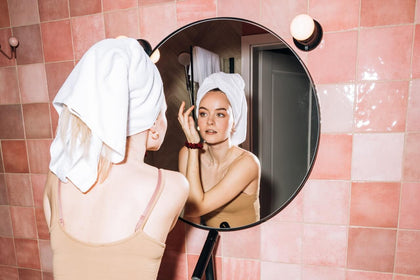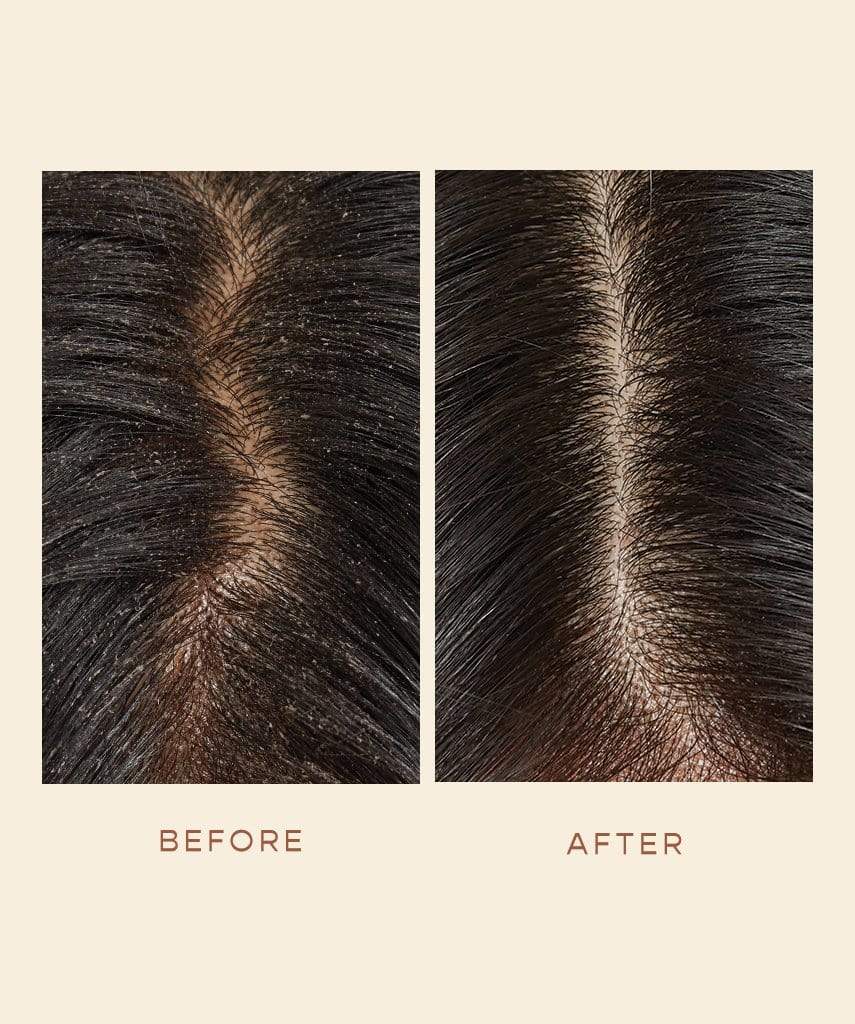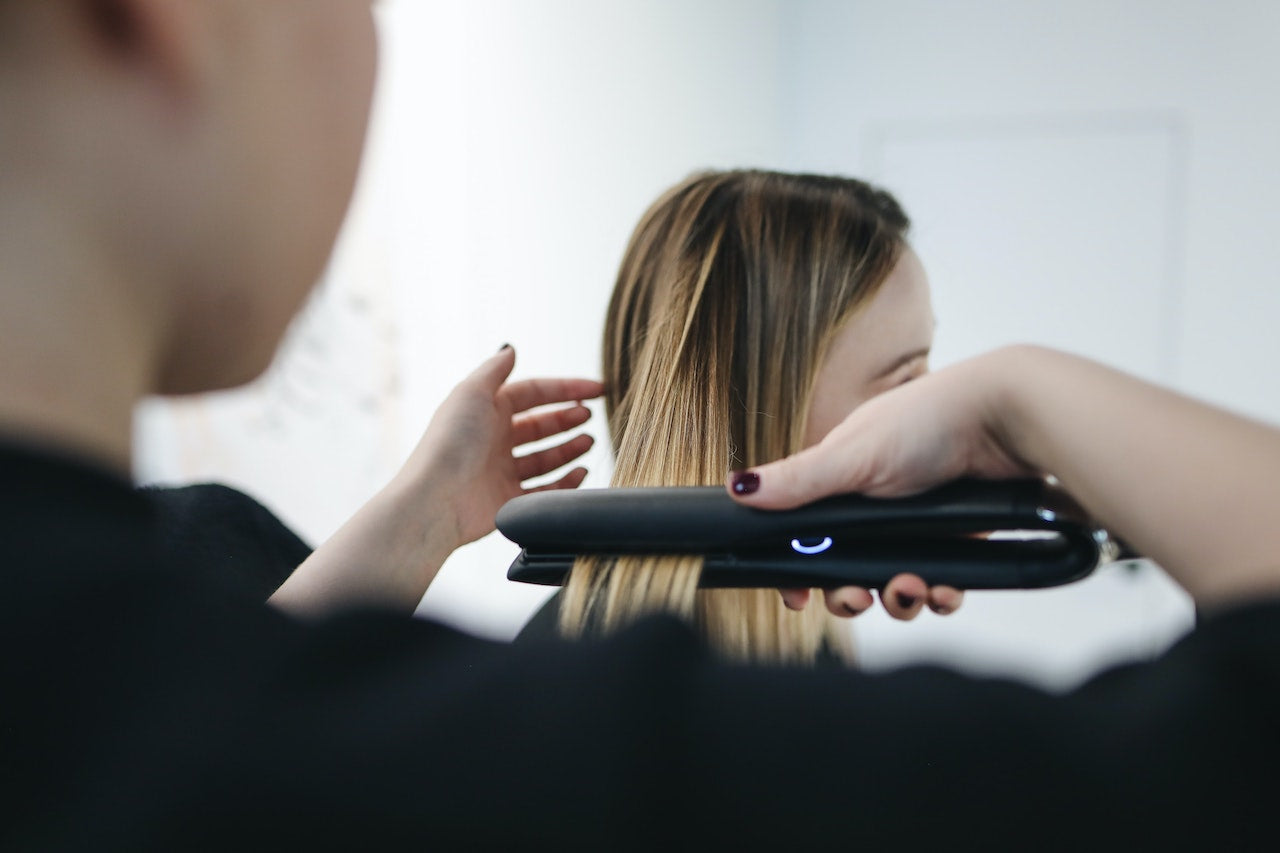Dealing with a smelly scalp and hair is never fun. Symptoms can range from a slightly unpleasant smell to an unbearable odor accompanied by itching, inflammation and more. And when it comes to knowing how to tackle the issue of a smelly mane and scalp, the answer really depends on what's causing it. In some cases, amping up your hair care routine will do the trick. In other instances, you may need professional help.
To get to the root causes of a smelly scalp, VEGAMOUR spoke to several dermatologists. Read on to find out what to do if your hair and scalp need some freshening up — plus, the best products for scalp health you should be using.
8 Common Causes of Scalp and Hair Smell
Plagued by unpleasant odors up there? Here are some common reasons that could be to blame for your smelly hair and scalp annoyances.
1. Not Washing Your Hair Enough
The scalp naturally contains microbes like bacteria and yeast that work to break down your scalp's sebum (natural oils) and dead cells. The problem is, when we don't wash our hair often enough, these microbes tend to build up on our scalps, releasing acids and compounds with foul smells.
"Negligent hair hygiene is the major reason for the buildup of sweat, oil and grime on the scalp." said clinical dermatologist Dr. Ailynne Marie Vergara-Wijangco. "Washing your hair often is key to fresh-smelling strands, especially if you live in a polluted city. Environmental and chemical pollutants can get stuck in your oily hair and scalp to make them smell even worse."
Shop: GRO Scalp Health Kit
2. Washing Your Hair Too Often
Just as not washing your hair enough is an issue, the opposite extreme comes with its own set of problems, especially if you're frequently using scalding hot water or harsh shampoos.
"Excessive hair washing with harsh shampoos or hot water can strip away the natural lipids from your scalp and make it increasingly dry," Dr. Vergara-Wijangco said. The doctor also explained that a dry scalp can cause your sebaceous glands to produce extra oil in an attempt to rehydrate the scalp, which can make your smelly hair and scalp problems worse.
To avoid drying out your scalp, try GRO Revitalizing Shampoo, which features 100% vegan silk keratin that bonds to your strands for smoothness and shine, while wild-harvested marula, baobab and ximenia oils moisturize and nourish your tresses and scalp with no pore-blocking residue. And for the perfect shampoo/conditioner combo, opt for the GRO Revitalizing Shampoo & Conditioner Kit, which features one 8-ounce, full-size bottle of each formula.
3. Wearing the Same Hats
Hair hygiene isn't just limited to how often we wash our hair, but also what we put on it. "Not washing hair coverings like hats, scarves and baseball caps can cause smelly hair," said board-certified dermatologist Dr. Kemunto Mokaya M.D., who's also known as Dr. Kemmy.
What's more, wearing hats for prolonged periods of time can cause excessive sweating, leading to noticeable odors. "This is why you are advised to choose headgear made from light, breathable materials to keep your scalp properly ventilated," said Dr. Vergara-Wijangco.
Also: Why Does My Scalp Hurt?
4. Excessive Sweating
Another common cause of potential for odor buildup is called craniofacial hyperhidrosis, aka the act of sweating excessively from the face and scalp. "[Hyperhidrosis] occurs in people who simply have a higher concentration of sweat glands, [or it's] the result of other causes like menopause, stress, fevers or increased temperature and illnesses, [triggering] your sweat glands to be more active," board-certified dermatologist Dr. Erum Ilyas, FAAD said.
What's worse, your sweat can smell more pungent depending on your diet, leading to smellier hair days. "When you add the consumption of foods that lead to pungent sweat, you have a double whammy. Those foods include the vegetables in the alliaceous family like garlic and onion, and those in the cruciferous family like broccoli, cabbage and Brussels sprouts," Dr. Kemmy explained.
Also: Do You Know Your Scalp Type?
5. Fungus or Yeast
Another common cause of odor from the scalp is "the excess oil and sebum buildup that acts like a reservoir for bacteria and yeast to overgrow," said Dr. Ilyas.
Dr. Ilyas also explained that after shampooing hair, we begin to experience variations of "hair regreasing," which is when our hair's sebum and oils move from the roots and down its strands. Post-shower, "the scalp's skin cells start to produce more sebum, which migrates down the hair follicle to ‘regrease’ the hair. If one doesn't shampoo routinely, this oil and sebum can start [an odor-inducing buildup of yeast and bacteria] not just on the hair, but the scalp itself," Dr. Ilyas explained.
The chances of having smelly hair are increased for those who have an oily hair type. "Your hair and scalp accumulate dirt, dead cells, sweat and sebum daily, especially if you go out often and have a naturally oily scalp. Skipping hair washing for many days leads to a gradual buildup of these substances on your scalp, which then becomes a breeding ground for malodourous bacteria and fungi," said Dr. Vergara-Wijangco.
To help, consider trying GRO Scalp Detoxifying Serum, which contains proprietary phyto-actives, vegan proteins and minerals that work together to remove persistent scalp buildup, soothe scalp damage and provide a semi-permeable, moisturizing barrier. The best part? This formula has been clinically shown to reduce scalp buildup by up to 58% in 15 days.
See: What Does a Healthy Scalp Look Like?
6. Vinegar Rinses
While an apple cider vinegar rinse can work wonders for scalp and hair health, it's also known to leave a noticeable after smell. Be sure to rinse any ACV residues well and consider following up with a pleasant-smelling conditioner to reduce any vinegary aromas from your precious locks.
7. Inflammation
If a smelly scalp issue is persistent or is paired with other symptoms like irritation, your scalp worries could be linked to something more serious. "Smelly hair and scalp can also be a byproduct of underlying skin conditions such as allergic contact dermatitis, psoriasis, seborrheic dermatitis and psoriasis, as well as metabolic or hormonal disorders such as an overactive endocrine gland," Dr. Vergara-Wijangco said.
Read: Dr. Clara Yu's 5 Healthy Hair Habits
8. Product Buildup
As much as we want to enhance our hair with products, applying too many hair care products has its consequences."Although they might initially smell pleasant when they are applied, as hair and scalp products break down (due to time, UV damage, oxidation etc.), their smell becomes unpleasant, and some of them even release malodorous volatile organic compounds," explained Dr. Kemmy.
Find Out: What's the Difference Between Dandruff and Dry Scalp?
#include-related-slider#
What to Do to Make Your Scalp Smell Better
Now that you know more about what can cause your scalp and hair to smell bad, here are some ways you can tackle the issue and get rid of smelly odors.
Wash Your Hair More Frequently
There's no one-size-fits-all rule for how often we should be washing our hair. "The frequency for the need to wash the hair is widely variable and person-specific. We all tend to have a personal sense of if we don’t wash our hair by a certain point, then it will start to look excessively oily or greasy," said Dr. Ilyas.
"The longer you go without washing your hair, the more your hair's oil glands are creating excess oil and excess sebum. Regular washing can regulate your scalp's oil production." So what's the recommended amount of times per week to wash your hair? Dr. Ilyas said, "People with an oily scalp or very thin hair require a head wash with a mild shampoo every alternate day, while others can afford to wait for a day or two more."
Also: How to Moisturize Your Scalp
Trust in Essential Oils
Essential oil remedies exist for just about anything, including scalp health mainly because some of these oils have antifungal or antibacterial properties. As it turns out, essential oils like lemongrass contain potent antimicrobial effects against pathogenic bacteria and fungi that could be at the root of your scalp odor worries.
Antibacterial turmeric oil and tea tree oil are also winners when it comes to home remedies for a stinky scalp and getting rid of any unpleasant smell. To reap the benefits, mix a few drops with some aloe vera or a carrier oil for added soothing benefits before rubbing it onto your head. Never apply essential oils to your skin directly — they are very concentrated and can cause irritation. Always use a carrier oil like pure marula oil to dilute essential oils.
Opt for Dry Shampoo
Don't have time to wash your hair? For those busy days, absorb excess oils and prevent smelly scalp odors with GRO Dry Shampoo. This lightweight formula is vegan and cruelty free. Plus, it contains USDA organic-certified rice hulls, mung bean, red clover and kaolin clay to help your hair look, smell and feel clean without weighing it down.
Use a Special Shampoo
If you're experiencing strong odors around your scalp, you may need to grab a targeted shampoo to clear up any harmful bacteria. "A buildup of dandruff and sebum on the scalp sometimes has a cheesy foul smell, almost like rotten cheese. It is a clue that you may need to shampoo," said board-certified dermatologist Dr. Anna Chacon."Consider using shampoos with minerals such as zinc pyrithione, selenium sulfide and ketoconazole. These are also available in prescription strength if needed."
Dr. Vergara-Wijangco advised that sometimes doctors recommend topical medications, like salicylic acid shampoos, to get rid of excess sebum.
Find Out: 6 Signs You Need a Scalp Detox
Try a Weekly Exfoliating Scalp Treatment
Dr. Robert Morrell, M.D., recommends using soaps or apple cider vinegar to exfoliate the debris on your hair follicles. Or you can opt for GRO Scalp Detoxifying Serum to clear away the slough of dead skin cells and the buildup of grease on your scalp.
Reduce Sweating
If you're prone to sweating excessively, it could be beneficial to consider medicated solutions. "Topical agents that include aluminum chloride can be applied to reduce excess sweating. There are over-the-counter preps such as certain [remedies] that come as a wipe-and-toss pad or prescription liquids to apply a couple times a week," said Dr. Ilyas.
See: A Beauty Editor Shares Her VEGAMOUR Routine
Wash Your Hats
On your next laundry day, be sure to include your hats. "Wash hair accessories like hats, caps, and headscarves frequently to prevent them from trapping sebum and other hair chemicals that then rub off on clean hair and make it smelly," said Dr. Kemmy.
Also: Dry Scalp and Oily Hair? Try This
See a Doctor
If your hair and scalp continue to smell after trying these remedies, see a doctor. Your hair smell could be a symptom of an inflammatory issue like scalp psoriasis, seborrheic dermatitis or hormonal imbalances, especially if you're currently experiencing other concerns like uncontrollable itching or hair loss.
The treatment your doctor will prescribe for smelly scalp syndrome will depend on its root cause. "In most cases, the smell is the result of an underlying scalp infection, which can be bacterial or fungal. Bacterial scalp infections are treated with medicated shampoos or hair products containing antibacterial agents such as triclosan, whereas yeast or fungal growth scalp infections are treated with antifungal hair products that contain ketoconazole," explained Dr. Ilyas.
Keep Hair and Scalp Odors in Check With Proper Care
Having a smelly scalp and hair can be unpleasant. But making an effort to incorporate a gentle and nourishing hair wellness routine on the regular can help keep your scalp microbiome balanced and your tresses clean and fresh. However, if you notice a persistent, offensive odor, accompanied by other troubling symptoms, such as inflammation or sores, consult with a dermatologist.
More From VEGAMOUR
- Shop: All Natural Hair Products
- Why Is My Scalp Tender in Just One Spot?
- Get to Know VEGAMOUR's Serums
- Can Scalp Psoriasis Cause Hair Loss?
Photo credit: KoolShooters/Pexels
Back





















